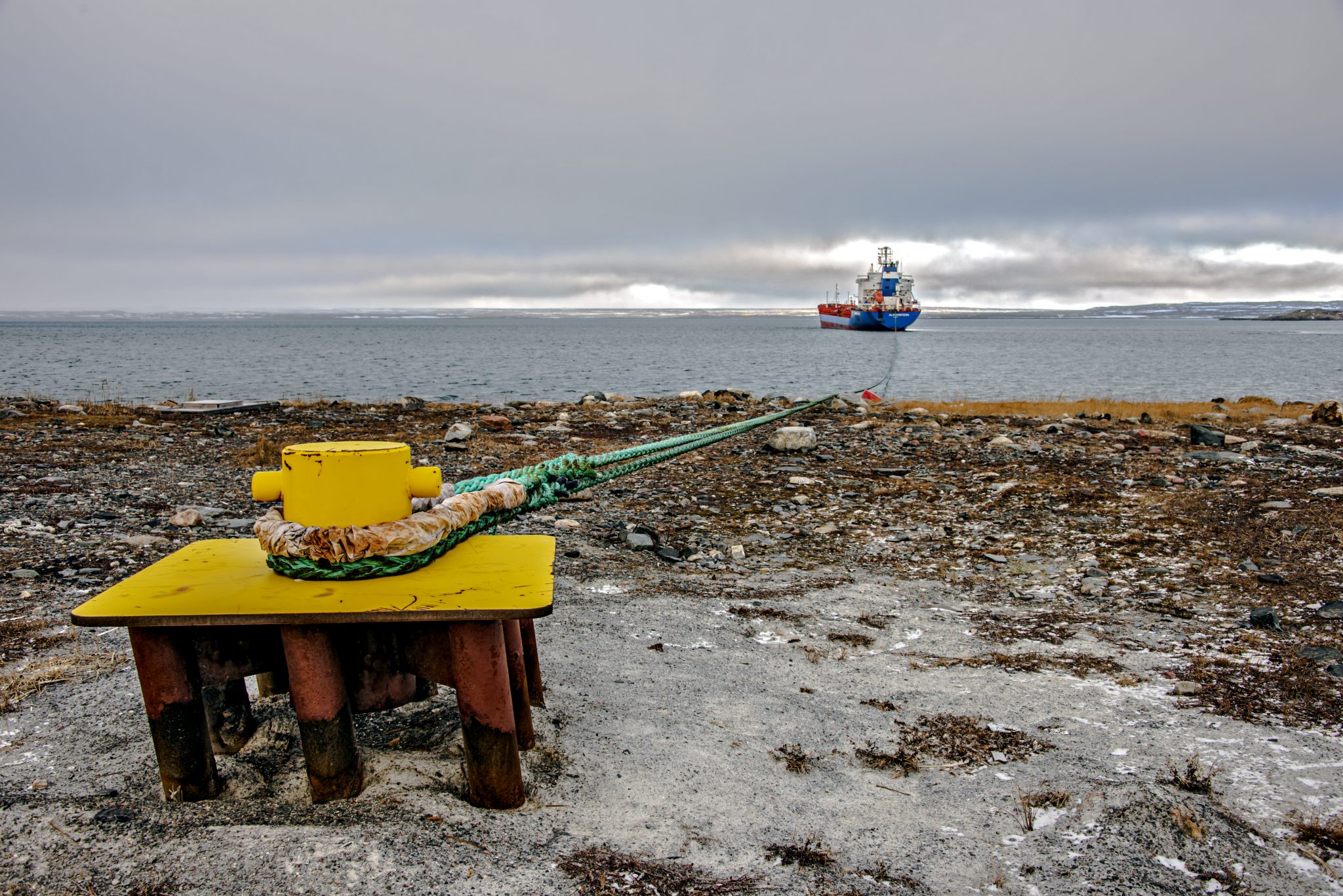Nunavut says its fuel supply is safe during the COVID-19 pandemic
The territory taking advantage of low oil prices, and buying supplies for 2021.

Nunavut’s petroleum products division does not foresee any difficulties getting fuel delivered to the territory during the COVID-19 pandemic, and it’s taking advantage of the recent crash in oil prices to buy as much fuel as it can for 2021.
The division, known as PPD, has bought all its fuel requirements for 2020, at prices 19 percent lower than the previous year, said acting director Ford Widrig.
It’s also secured about 35 percent of diesel requirements for 2021 — which is about 25 percent of overall requirements — at prices that are 23 percent lower than in 2019, said Widrig.
“We’re just doing the best we can to keep prices down and keep fuel flowing,” he said.
He attributes current low oil prices to how Saudi Arabia and Russia are “both trying to cut costs and flood the market with product to see who blinks first.”
“It’s definitely a huge contributing factor to the decline in fuel markets,” Widrig said. “Obviously coronavirus is a big deal, but behind that and at the same time there’s a price war going on.”
The amount of fuel PPD can secure for 2021 at this time is limited by PPD’s recurring fund of $250 million. The fund acts as a line of credit from the Government of Nunavut. The division pays it off by selling fuel to contractors and homeowners.
If PPD is able to pay off enough of its line of credit through sales, and if the prices remain low, Widrig said they’ll take advantage of that to buy as much fuel as they can.
“We’re just trying to do what we can with the resources we have.”
Because PPD is securing fuel for 2020 for 19 per cent less than it did the previous year, PPD will be able to sell it to Qulliq Energy Corp. at a lower price. That’s why QEC recently announced that customers will get a refund of 2.76 cents per kilowatt hour on their bills from April until September.
Assuming a bill is 500 kilowatt hours for a month — which is just under the average use by Nunavummiut — the refund will be $14.50 per month.
“It’s a small amount, but it’s an amount in the right direction,” said Bruno Pereira, the president and CEO of QEC.
The refund will be automatically added to bills, except for public housing tenants, who are subsidized under Nunavut Housing Corporation’s program, Pereira said.
Although the request for the refund is currently waiting for approval from Nunavut’s Utility Rates Review Council, Pereira said QEC has interim approval from Jeannie Ehaloak, the minister responsible for QEC, to implement the refund starting this month.
Fuel prices at the pumps are currently up, Widrig said, because the federal carbon tax was recently implemented. “It’s not PPD’s initiative,” he said.
“The actual increase you see in the pumps is offset by [the] 50 percent carbon rebate,” Widrig said, “that’s something the GN implemented to lessen the blow of the carbon tax.”
Although fuel has been secured into 2021, the supply for this summer is not yet in Nunavut.
Widrig said PPD isn’t anticipating any difficulties in the ships getting fuel to Nunavut and unloading it.
“At this point we’re confident it’s going to go forward,” he said. “It’s something that absolutely has to happen for Nunavut.”
He said that people on the ship don’t have to interact with Nunavummiut on shore to get the fuel off.
“So if we are still experiencing the pandemic, at least in that sense they’ll be able to segregate themselves and get the job done.”
The challenge may come when the fuel is distributed around Nunavut, because Widrig said there may be logistical issues with PPD staff moving around the territory, if the pandemic lockdown extends into July.
“I think we’ll have to be cognizant of what’s going on right now,” he said. “We might see disruptions in our ability to fly staff around … with reduced air service.”
And reduced air service may affect PPD in another way, through its jet fuel sales.
“We have seen them climbing quite a bit in certain communities in certain years, but if airlines aren’t flying no one else is going to be buying that jet fuel,” Widrig said.
PPD may look at reducing its order of jet fuel for the coming year, but if it’s too late to do that, Widrig said they may have to look and see where they have extra storage.